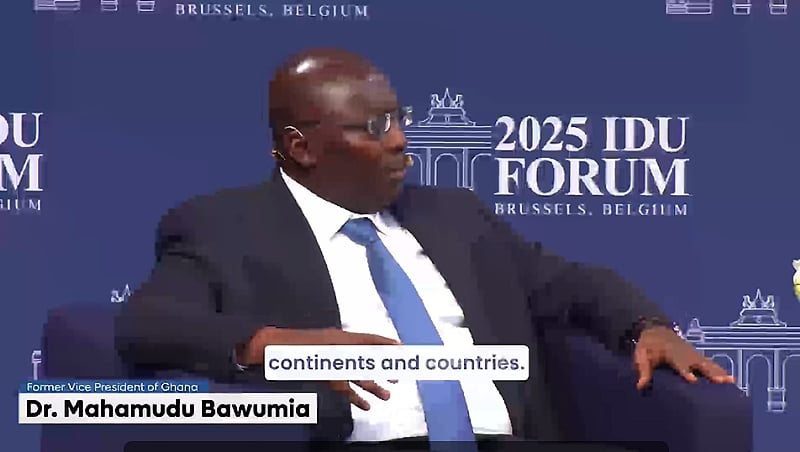Dr. Mahamudu Bawumia, former Vice President of Ghana, delivered a compelling critique of using tariffs to address trade imbalances at the International Democracy Union (IDU) Forum in Brussels. He argued that such an approach reflects a concerning disregard for fundamental economic principles and historical evidence, emphasizing that trade deficits are primarily macroeconomic phenomena rooted in the relationship between national savings and investment, not simply the result of poor trade policies. Tariffs, therefore, are an ineffective and potentially counterproductive tool for rectifying these imbalances.
Dr. Bawumia underscored his argument by presenting global trade data. He highlighted the relatively small share of global trade accounted for by Africa, with exports at 2.5% and imports at 2.9%, compared to significantly larger contributions from other regions. Asia, for example, represents 43% of global exports and 38% of imports, while Europe accounts for 38% of exports and 51% of imports. The United States, meanwhile, exports 8% and imports 14%. These figures, he noted, clearly demonstrate the existence of global trade imbalances, but addressing them requires a deeper understanding of their underlying causes.
The crux of Dr. Bawumia’s argument rests on the fundamental macroeconomic principle of national income identity. This principle establishes a direct link between a nation’s trade balance and the difference between its national savings and investment. He explained that a country’s income can be expressed as the sum of its consumption, investment, and government spending, plus exports and minus imports. This identity can be further simplified to show that a trade deficit (imports exceeding exports) is inherently linked to a gap between savings and investment, where investment exceeds savings.
Essentially, when a nation spends more than it saves, necessitating borrowing or drawing down existing reserves, it inevitably creates a demand for foreign goods and services, leading to a trade deficit. This deficit is not merely a consequence of trade policy but a reflection of the broader macroeconomic landscape. Attempting to rectify this through protectionist measures like tariffs, Dr. Bawumia argued, is akin to treating the symptom rather than the disease. It fails to address the fundamental issue of insufficient national savings relative to investment.
Therefore, policymakers seeking to reduce trade deficits should focus on addressing the underlying macroeconomic imbalances. This requires implementing policies that encourage higher national savings rates, fostering a climate conducive to productive investments, and managing government spending effectively. These structural reforms, rather than short-term trade interventions, are the key to sustainable improvements in a nation’s trade balance.
Dr. Bawumia’s message serves as a crucial reminder of the interconnectedness of macroeconomic factors and international trade. By understanding the fundamental relationship between savings, investment, and trade balances, policymakers can develop more effective and sustainable strategies for economic stability and growth. A narrow focus on trade policy, without addressing the underlying macroeconomic imbalances, is not only ineffective but can also exacerbate economic challenges and hinder long-term prosperity.














